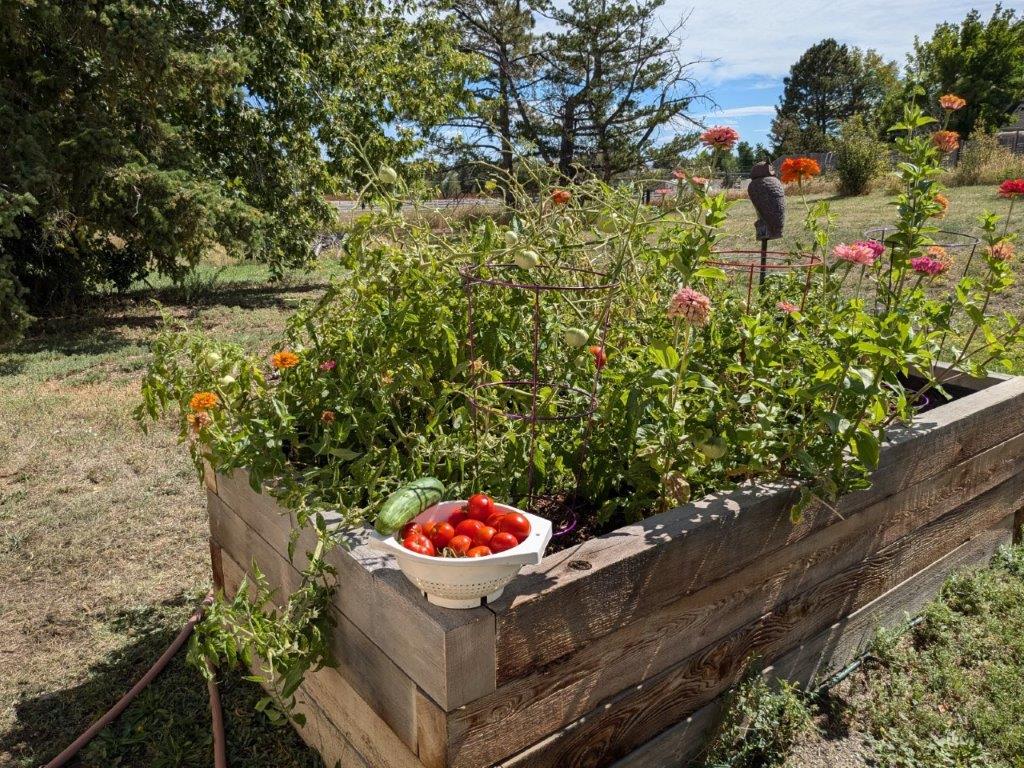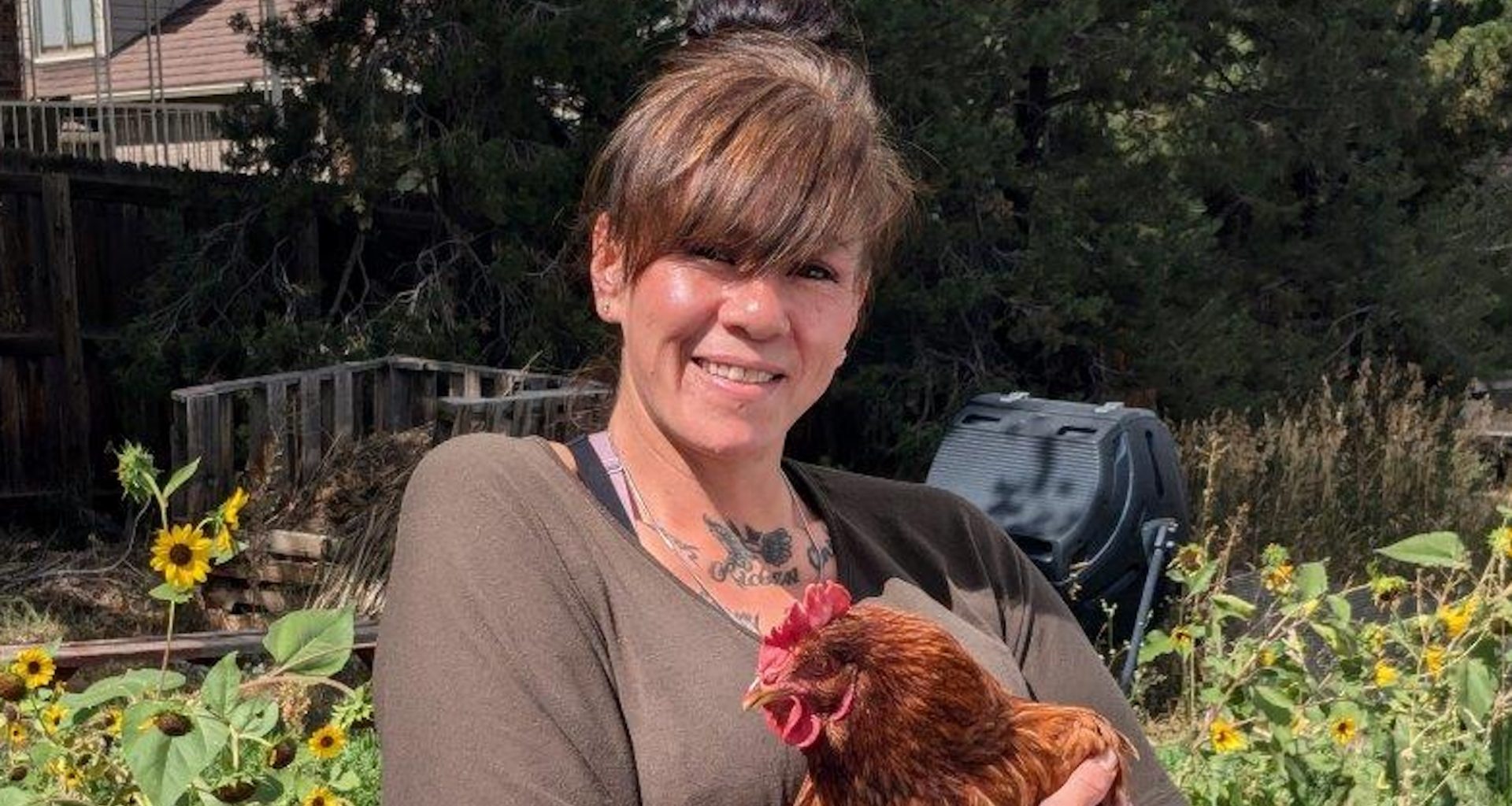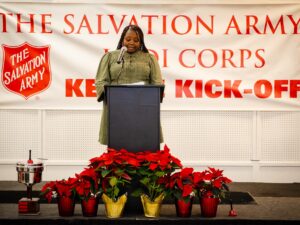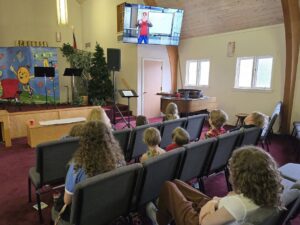Nestled on eight acres of property surrounding the Cottonwood Women’s Residence at The Salvation Army Denver Adult Rehabilitation Center (ARC) in Arvada, Colorado, sits a thriving garden filled with zucchini, pumpkins, cucumbers and tomatoes. Nearby, a quaint chicken coop provides a home for seven chickens.
Cottonwood Resident Manager Julie Wirtz said the property is a place for healing and growth for those seeking addiction support through the ARC six-month, no-cost residential recovery program. While in the program, participants receive emotional and social support, develop life skills and receive spiritual guidance to help them take control of their lives.
“We’re on a beautiful property out here,” she said. “It’s very therapeutic for the ladies to be outside—tending to the earth and mending their spirits.“
After Wirtz graduated from the program and accepted the role of resident manager in 2013, she established the garden to encourage beneficiaries to spend time outdoors, and it has continued to expand.
When Wirtz’s friend gave away chickens, she saw an opportunity for the ARC to provide them with a new home while offering additional benefits to participants.

“It’s a great way for them to get outside and connect with nature, which can be very therapeutic,” she said.
After two years with the chickens, she said they have helped introduce tasks that promote accountability, establish routines and offer a meaningful focus.
“A couple of women will volunteer to feed them each morning,” Wirtz said. “Later in the day, we let them run loose, hang out with them and collect eggs.”
She said each chicken has a unique personality and, like many animals, they begin to recognize faces. “They’re very dramatic creatures,” she said. “But they’re a lot of fun to have around.”
While some women enjoy spending time with the chickens, others prefer to tend the crops and harvest fresh produce to improve their cooking and baking skills.
Among the 17 women in the program, Wirtz said some have come from prison and need a refresher on life skills to improve their independence.
Soni Atencio graduated from the program in September and considers the chickens a key component of her recovery journey.
“They taught me how to have a routine again,” Atencio said. “I would get up early every morning and before I would even eat breakfast, I’d feed them, clean the coop and spend time with them.”
She said having responsibilities helped her restore a work ethic.
“I struggled with addiction for years, and when I got sober and found a job, the business was robbed,” Atencio said. “This led me to relapse, and I couldn’t get back on track on my own.”
After serving time in prison for drug-related charges, she went straight to the ARC, where one of her main tasks became caring for the chickens. As an animal lover, she welcomed the opportunity.
The ARC taught me that I need to keep my obligations. This helped me dig down and find my responsible, caring and honest self that was lost to drugs.
Soni Atencio
“Everyone soon referred to them as ‘my babies,'” she said. “I would spend around two hours a day with them.”
She said the program introduced her to new ways of caring for others and being reliable.
“The ARC taught me that I need to keep up with my obligations and commitments,” Atencio said. “This helped me dig down and find my responsible, caring and accountable self that was lost to drugs.”
Today, Atencio works two jobs and lives in a nearby sober living apartment with a roommate.
She makes time to visit the ARC for recovery meetings, connect with participants and spend time with the chickens.
“I follow a routine and hold myself accountable now,” she said. “The ARC saved my life and put me on the right path.”
Wirtz said when participants engage in outdoor activities, like caring for animals and plants, they learn to appreciate the rewards of hard work and dedication, which she’s seen benefit their recovery journey.
“The women see the fruits of their labor and begin to realize that with hard work,” Writz said, “ they too can thrive and grow.”
Do Good:
- See how The Salvation Army supports rehabilitation.
- Get the Do Good Digest. (Because you’re human and hopeful.) Join 20k+ people who know even the smallest actions add up to make a big difference and get weekly inspiration sent right to your inbox.












